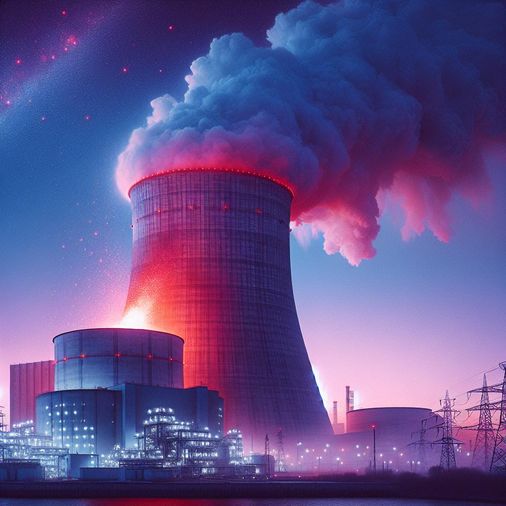Escalating Tensions: Fire Breaks Out at Zaporizhzhia Nuclear Power Plant Amid Ongoing Ukraine-Russia Conflict

A significant escalation in the ongoing Ukraine-Russia conflict occurred over the weekend with a fire at the Zaporizhzhia nuclear power plant, which has been under Russian occupation for over two years. Ukrainian President Volodymyr Zelensky accused Russian forces of intentionally igniting the blaze as a tactic of intimidation against Kyiv. Conversely, the Kremlin-installed governor of Zaporizhzhia, Yevgeny Balitsky, claimed that the cause was Ukrainian shelling, urging citizens to remain calm as no radiation spikes had been reported.
The International Atomic Energy Agency (IAEA) confirmed witnessing strong dark smoke from the facility following multiple explosions. They stated that there was no immediate threat to nuclear safety, although the IAEA has sought access to the cooling tower to further assess the damage.
This incident at the nuclear plant coincides with reports of a significant Ukrainian military advance, with troops reportedly pushing up to 30 kilometers inside Russia’s western Kursk region. This marks the most substantial incursion since the commencement of Moscow’s full-scale invasion in February 2022. During a recent address, President Zelensky acknowledged the offensive, revealing that Ukrainian forces were intentionally taking the fight into enemy territory.
The counteroffensive involves thousands of Ukrainian troops, far exceeding initial assessments made by Russian border authorities. The operation initiated last Tuesday has displaced over 76,000 residents from the Kursk region, prompting local authorities to declare a state of emergency. Russian officials have reported numerous injuries as further clashes continue.
In response to the heightened tensions and military operations, Russian President Vladimir Putin characterized Ukraine's actions as major provocations. The turmoil and military dynamics underline the shifting landscape of the conflict, raising concerns over potential nuclear safety, humanitarian impacts, and the strategic consequences of such military maneuvers.
With the Zaporizhzhia plant's operations on hold since April 2022, the specter of nuclear safety in a war zone remains a focal point of international concern, as both sides exchange blame amidst an increasingly volatile conflict.
Related Sources:
